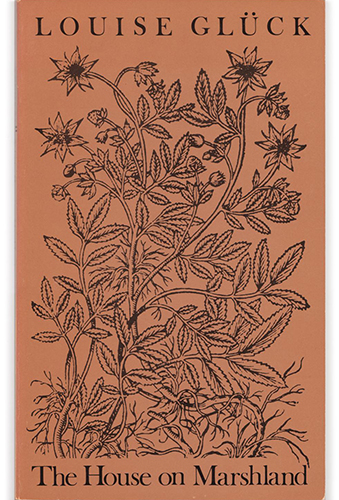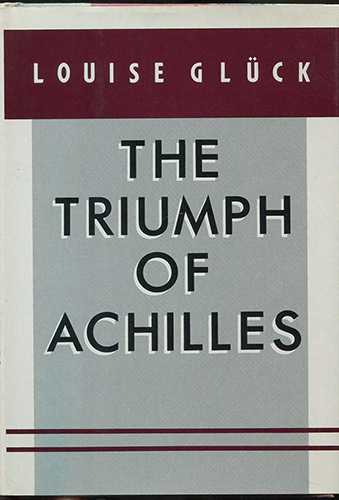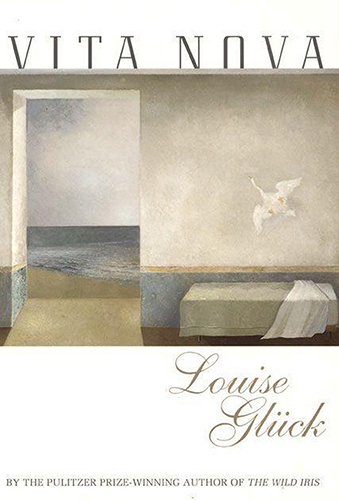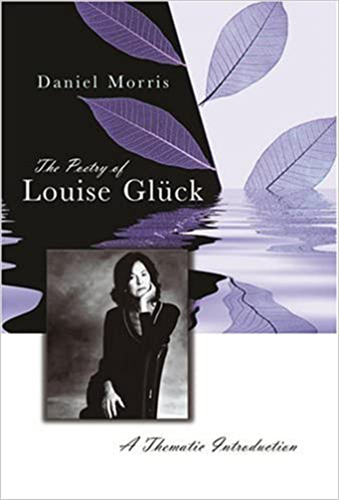
Louise Glück is awarded Nobel Prize in Literature
The 2020 Nobel Prize for Literature has been awarded to American poet Louise Glück (1942-). This means the Nobel committee passed by authors like Anne Carson, Jamaica Kincaid en Maryse Condé, many of whom were tipped by academics and literary critics as being strong contenders for the prize in 2020. Glück’s win comes as somewhat of a surprise, as she was seldom named as a potential Nobel Prize candidate, even though the Nobel is hardly her first award.
Previously, Glück won the Pulizer Prize for her much lauded collection of poetry: The Wild Iris (1992), in which flowers discuss existence with their gardener and a goddess. Helen Vendler, the well-known American critic, once wrote the following about the The Wild Iris: “What a strange book The Wild Iris is, appearing in this fin-de-siècle, written in the language of flowers.” Admittedly, flower names abound in her poetry: From ‘violets’ to ‘clover’, and ‘the Gold Lily’ to ‘wild iris’.
Glück debuted in 1968 with her poetry collection Firstborn; a work that didn’t get much attention from critics. After a dry spell of a few years, she published her 1975 The House on Marshland, now often regarded as her breakthrough and the collection in which she found her poetic voice. Many of her later works, like Meadowlands (1996) and Averno (2006), are thematically similar and discuss classical themes like death, trauma, rejection, and (failed) marriage. Translations to Dutch have yet to be published in full book form, but literary magazine Yang published her work in Dutch translation as early as 1977. In 2004, Erik Menkveld once again brought the work to the Dutch reader’s attention by publishing an extensive epistolary introduction to het work and translating some of her poems.
The UBL has some, but not all, of Glück’s books of poetry in her collections. Additionally, much has been written about Glück and her work. Both her books and the reference work below are available for request via the links below or by searching our catalogue.
The House on Marshland – 1975
The second book of poetry from Louise Glück’s hand, The House on Marshland, is often regarded as her big breakthrough. The collection is constructed from two parts: All Hallows and The Apple Trees. In the first part, Glück mainly focusses on her childhood, but intermingles these stories with mythological and religious themes. This results in often thrilling and almost fairy-tale-like poems. In The Apple Trees she continues her journey through childhood, but also slowly shifts focus to themes of love and the problems that arise from it.

Had you died when we were together
I would have wanted nothing of you.
Now I think of you as dead, it is better.
- The Fire
The Triumph of Achilles – 1985
In this three-part book, Glück deals, as in much of her previous work, with death. In her cycle ‘The End of the World’ she approaches death not as a literal end of the world, but as a personal apocalypse. Particularly the death of her father seems to have had a great impact on The Triumph of Achilles. An important deviation from her previous work in The Triumph of Achilles is her approach of Christianity. Whereas she first approached faith objectively, pulling it out of modern and personal context by implicitly equating it to mythologies, she now approaches it from a more personal and modern angle.

Today, when I woke up, I asked myself
why did Christ die? Who knows
the meaning of such questions?
- Winter Morning, 1
Vita Nova – 1999
In Glücks most recent book in the Leiden University Libraries’ collection, Vita Nova, she returns to some familiar themes: Love and death. The title already hints to the important role rebirth takes in this work. A multitude of different voices interact with the author, the reader and each other in the text, in a way reminiscent of a Greek comedy. Characters from Greek mythology get a new and modern form in her poetry. In that way, she shows the reader that mythological figures are not to be regarded as residues from the past, but ever present characters in the here and now.

Eurydice went back to hell.
What was difficult
was the travel, which,
on arrival, is forgotten.
Transition
is difficult.
And moving between two worlds
especially so;
the tension is very great.
- Eurydice
Daniel Morris - The Poetry of Louise Glück: A Thematic Introduction
In his study of Louise Glück’s work, Daniel Morris (professor of English and Comparative Literature at Purdue University) shows how the poet uses historical, mythological, religious and even fairy-tale characters to approach the reader almost whilst wearing a mask. Morris characterizes Glück’s work as commentary on these famous stories, showing her life-long ambivalence toward religious themes in particular. Morris emphasizes her irreverent attitude towards these stories through which she both expresses herself and deflects her autobiographical impulse. The Poetry of Louise Glück: A Thematic Introduction is fully available online through our catalogue.

`
